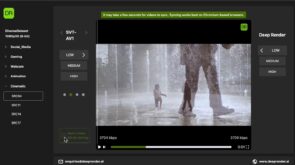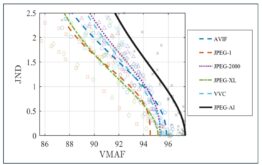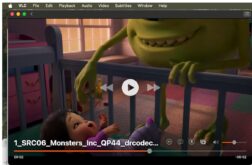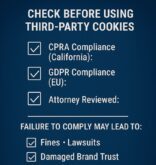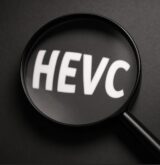Google recently open-sourced the VP8 codec for video on the web (for the key facts on this development, see Tim Siglin’s latest Streamline column). Should you care? Not so much, I’d say; Google’s recent launch of VP8 reminded me of a couple of theories that I hold dear, one current, one from long ago. The current one is that past performance is no guarantee of future success, though unfortunately, in many instances, past performance will at least let you step up to the plate for future at-bats.
Examples abound in music and publishing. For example, the Rolling Stones’ early successes bred multiple albums that never would have been released without the storied history. Absent transcendent songs like “Sympathy for the Devil” and “You Can’t Always Get What You Want,” stinkers like “Start Me Up” and “Angie” never would have hit the radio waves. Stuart Wood’s first novel, Chiefs, was brilliant, but I wouldn’t read anything he’s written in the last 20 years if I were suffering from terminal insomnia and it was the last book on my night table. Patricia Cornwell, whose first few books were engaging action-packed thrillers, has decomposed into producing overly introspective, depressing, and boring novels that I find impossible to finish. If John Grisham were a first-time author, books like Playing for Pizza would have never seen the light of day.
There are exceptions, of course: the evergreen and ever-compelling Bruce Springsteen in music and the reliable-as-the-sunrise John Sandford in fiction writing. But for the most part, you have to evaluate each work on its own, without reference to past products that may have either funded or given the producer the necessary credibility to get the new product launched. Google has quite rightfully achieved a wonderful reputation for its search business, which is a product I use multiple times daily. I’m actually writing this column in Google Documents, which I also use daily. But that doesn’t mean that Google’s halo extends to VP8. Rather, like “Angie” and Playing for Pizza, VP8 never would have been launched had the technology not been purchased and open-sourced by Google.
The other theory is older and perhaps a bit more jaded. Back in 1986, I was put in charge of a small division of a technology holding company, and we launched a PC Fax product called the JT Fax that allowed PCs to send faxes to fax machines, which was quite useful before email became mainstream. My little team had seven employees, including four engineers and a technician, and no marketing experience, so we pretty much made things up as we went along.
We did reasonably well product-wise and financially, with three PC Magazine Editor’s Choice awards (and multiple others), and ramping product sales. My boss ultimately folded the product into another division, which caused lots of stress, but some relief that our baby would benefit from more experienced marketing and development hands. Finally, we said among ourselves, we’ll find someone who truly knows what they are doing. When it came to engineering and marketing talent specific to our product and target market, we didn’t, and the division was later sold to crosstown modem king Hayes Microcomputer Products, and we found no brilliance there either..
It’s not that I don’t think there are smarter folks than me out there-trust me, my two daughters remind me that there are every day. Rather, at least in the technology game, it’s that success usually depends on being in the right place and right time with the right product, rather than any transferable brilliance of the engineering or product marketing team.
Back in 2006, Ben Elgin in BusinessWeek commented, “An analysis of some two dozen new ventures launched over the past four years shows that Google has yet to establish a single market leader outside its core search business, where it continues to chew up Microsoft and Yahoo.” More recently, responding to being called a one-trick pony by Microsoft and Yahoo, Google executive Nikesh Arora tacitly admitted that fact when he commented, “If we are a one trick pony, we have a pretty good trick.” No argument here, but that doesn’t mean that I want to use your codec.
Getting back to my second theory, Google doesn’t seem to know what they’re doing when it comes to launching a codec. I’ve performed some qualitative analysis, and found it slightly inferior to H.264, with more tests to come. This makes “slightly inferior, but open-source and from Google” the primary value proposition, which is pretty weak from my perspective, especially since there’s no royalty obligation for H.264 for free internet video until 2015. Another reviewer, far more technical than me, looked at the source code and spec and concluded, “VP8 is not ready for prime-time; the spec is a pile of copy-pasted C code and the encoder’s interface is lacking in features and buggy. They aren’t even ready to finalize the bitstream format, let alone switch the world over to VP8.”
What does this all mean to you? VP8 is a blank canvas that Google must shape into a viable technology before anyone should consider its use. Don’t stand up and salute just because Google launched it, because it wouldn’t have seen the light of day absent Google’s search business. Don’t assume that it’s going to be a raging success, because when it comes to producing and launching a codec, the alleged one-trick wonders at Google don’t really seem to know what they’re doing.
 Streaming Learning Center Where Streaming Professionals Learn to Excel
Streaming Learning Center Where Streaming Professionals Learn to Excel

